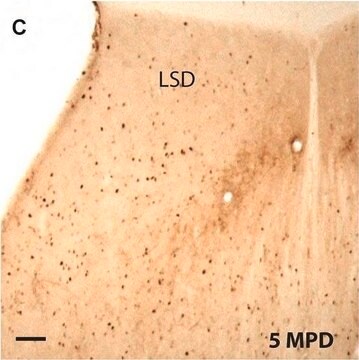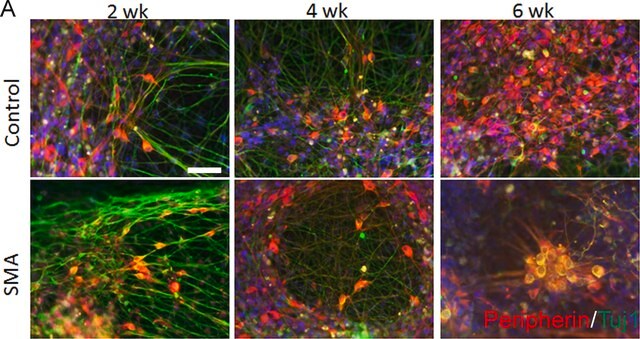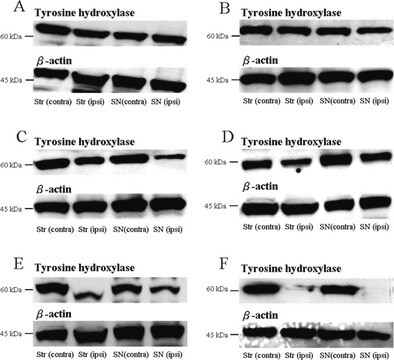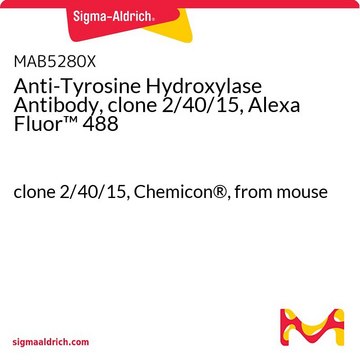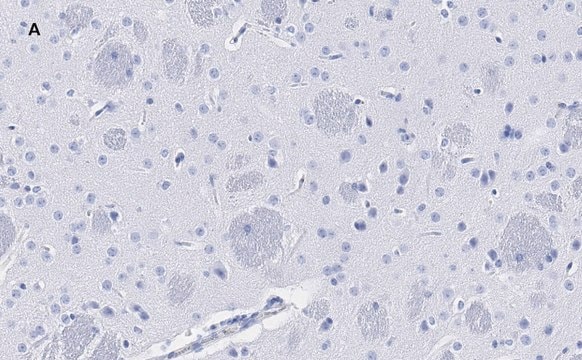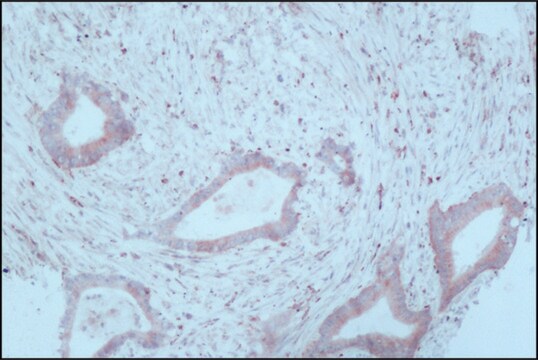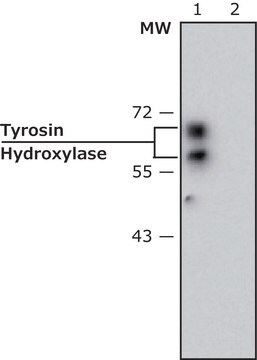MABN1188
Anti-Tyrosine Hydroxylase Antibody, clone 10F8.2
clone 10F8.2, from mouse
Sinónimos:
TH, Tyrosine 3-monooxygenase, Tyrosine 3-hydroxylase, Tyrosine Hydroxylase
About This Item
Productos recomendados
origen biológico
mouse
Nivel de calidad
forma del anticuerpo
purified immunoglobulin
tipo de anticuerpo
primary antibodies
clon
10F8.2, monoclonal
reactividad de especies
human, rat
reactividad de especies (predicha por homología)
mouse (based on 100% sequence homology)
técnicas
immunohistochemistry: suitable (paraffin)
western blot: suitable
isotipo
IgG2bλ
Nº de acceso NCBI
Nº de acceso UniProt
modificación del objetivo postraduccional
unmodified
Información sobre el gen
human ... TH (7054)
Descripción general
Especificidad
Inmunógeno
Aplicación
Neuroscience
Neuronal & Glial Markers
Calidad
Western Blotting Analysis: 0.25 µg/mL of this antibody detected tyrosine hydroxylase in 10 µg of PC12 cell lysate.
Descripción de destino
Ligadura / enlace
Forma física
Almacenamiento y estabilidad
Otras notas
Cláusula de descargo de responsabilidad
¿No encuentra el producto adecuado?
Pruebe nuestro Herramienta de selección de productos.
Opcional
Código de clase de almacenamiento
12 - Non Combustible Liquids
Clase de riesgo para el agua (WGK)
WGK 1
Punto de inflamabilidad (°F)
Not applicable
Punto de inflamabilidad (°C)
Not applicable
Certificados de análisis (COA)
Busque Certificados de análisis (COA) introduciendo el número de lote del producto. Los números de lote se encuentran en la etiqueta del producto después de las palabras «Lot» o «Batch»
¿Ya tiene este producto?
Encuentre la documentación para los productos que ha comprado recientemente en la Biblioteca de documentos.
Nuestro equipo de científicos tiene experiencia en todas las áreas de investigación: Ciencias de la vida, Ciencia de los materiales, Síntesis química, Cromatografía, Analítica y muchas otras.
Póngase en contacto con el Servicio técnico